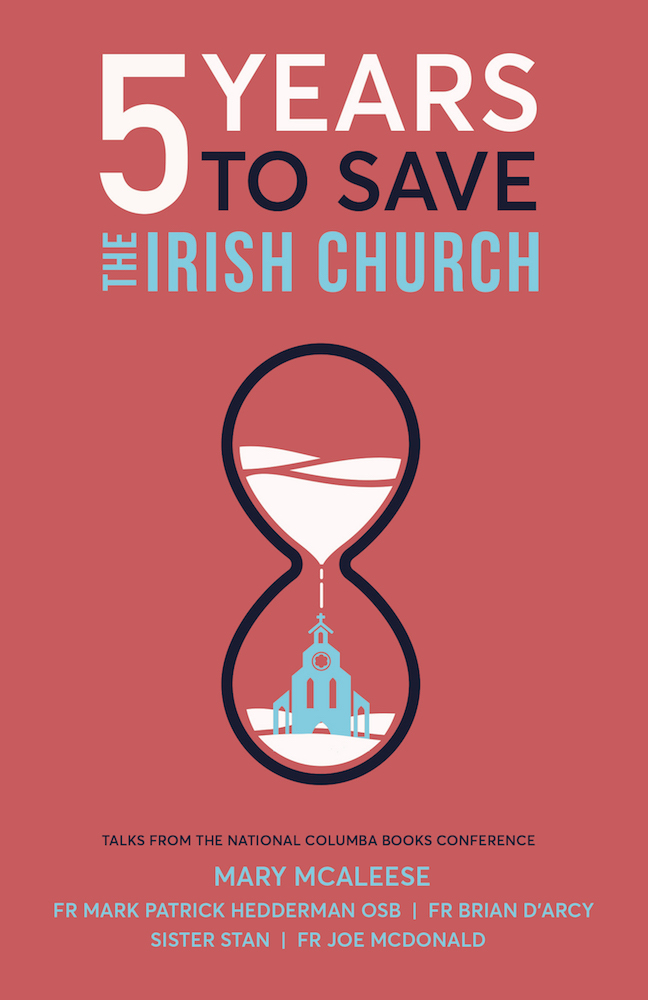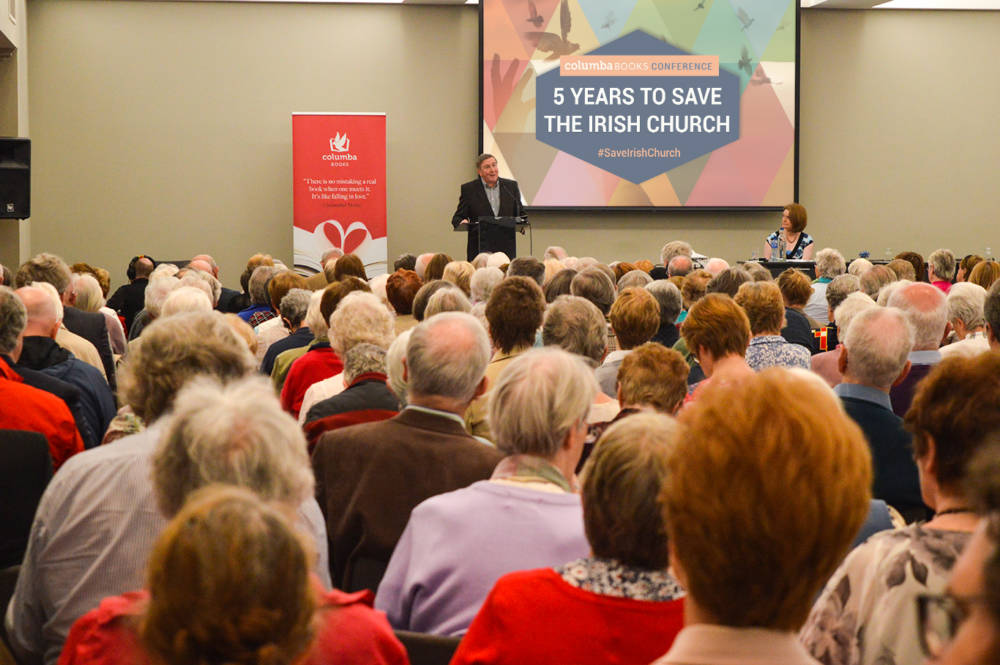5 Years to Save the Irish Church, a collection of talks by Mary McAleese, Fr Mark Patrick Henderman OSB, Fr Brian D’Arcy, Sr Stan and Fr Joe McDonald, reviewed by Dymna Mallon in The Furrow.
Described as ‘a clarion call from some of the most respected and challenging religious commentators of our time … a game plan to revive the Irish Church [to] help it to transition into a more honest and open Church’, this is a compilation of papers presented at the National Columba Books conference, held in Dublin in May 2018. Its brevity, comprising only 93 pages, should not imply that this is a quick or a superficial read.
Focusing on ‘the version of Catholicism which we now see collapsing in Ireland’, the collection suggests “to those in authority [that] ‘more of the same’ will end in tears ”. Recognising that ‘there is still a lot of goodwill out there’, it advocates ‘a servant leadership that abandons clericalism and works in a collegial manner’. Reflecting the diversity of the authors, their backgrounds and areas of speciality, it constitutes a pocket guide, a contextual theology for why things are as they are.
Brian D’Arcy and Mark Patrick Hederman both reflect on the position of the Irish Church as a baston of power and the dangers therein. D’Arcy criticises the determination to maintain structures at the expense of the Gospel message and relates reduced Church attendance to the refusal of the Church to engage with and relate to peoples’ lives. Hederman decries the power enjoyed by the Church since the foundation of the Irish state, suggesting that after two decades of immersion in the “degenerate moral behaviour” of the rest of the modern world, “the openly acknowledged purpose of the Irish hierarchy in inviting John Paul II to Ireland [in 1979] was to halt or at least slow the damaging inroads to the ancient Catholic faith of Ireland. ”
 Offering an evaluation of the Irish Church which is bleak and brutal, Joe McDonald suggests that “death has gotten into the bones of the Irish Church” and that four conditions reflect the accelerating malaise: the Ostrich Church which hides its head in the sand; the Rollover Church whose confidence and moral courage had vanished; the Saltless Church which has lost its inherent humility and the Hemorraging Church, whose woundedness is its internal dysfunction. He proposes, in response to each, plans of action, which are both radical and innovative, including a call for inclusion, empowerment and declericalisation, with prayer, humility and service as the foundations of the church moving forward.
Offering an evaluation of the Irish Church which is bleak and brutal, Joe McDonald suggests that “death has gotten into the bones of the Irish Church” and that four conditions reflect the accelerating malaise: the Ostrich Church which hides its head in the sand; the Rollover Church whose confidence and moral courage had vanished; the Saltless Church which has lost its inherent humility and the Hemorraging Church, whose woundedness is its internal dysfunction. He proposes, in response to each, plans of action, which are both radical and innovative, including a call for inclusion, empowerment and declericalisation, with prayer, humility and service as the foundations of the church moving forward.
Sr Stan considers structural and systemic sin the source of our collective failure to respond to many of Ireland’s most acute social problems. Identifying our relationship with God and the Gospel message as our primary responsibility, she prioritises values over laws, rules and regulations. Obedience to Church law “does not define a good Chrisitian”, and while “laws crystallise values … if we emphasise the laws we are in danger of missing the values that the laws are intended to express. ” Focusing on laws, she suggests, is “misrepresenting the nature of our relationship with God”, rather than calling us to radical living of the Gospel message, and can make participation more challenging for all who struggle to comply with those laws. Change must therefore be a constant, evolving process if the Church is to fulfil its call to be “just, loving and compassionate. ”
The legal expertise of Mary McAleese underpins her examination of the spiritual implications of infant baptism and the obligations attaching to the membership which it imparts, or perhaps imposes. A whistle-stop tour of international legal rights and Vatican responsibilities accruing from them showcases fundamental tensions between what the Church says and what it does in the protection of its members’ rights. She considers the Church “at a crossroads” where it must choose to “turn this creeping existential threat into a disaster by ignoring it or [to] turn it into a spring tide by dealing with it. ”
Despite the diversity of focus and perspective of these papers, common themes prevail such as the urgency with which change must begin, the lack of institutional commitment to real inclusion and participation, and the desire to see Gospel teachings and values, rather than organisational maintenance, at the heart of the Church. These are themes which provoke serious questions about the priorities and values of the Church as an institution. Most striking though is the love for and commitment to their faith and their relationship with God which each expresses. This love and commitment underpins the authenticity of their calls for a change of mindset, approach and emphasis. In expressing such love and hope, these papers are testements of faith in something more than an organisation or a structure; this gives them value, and the rest of us hope. With such a message, this book is the mustard seed, the treasure hidden in the field, and it can change your life.
January 2019
To get your own copy of 5 Years to Save the Irish Church click here.

